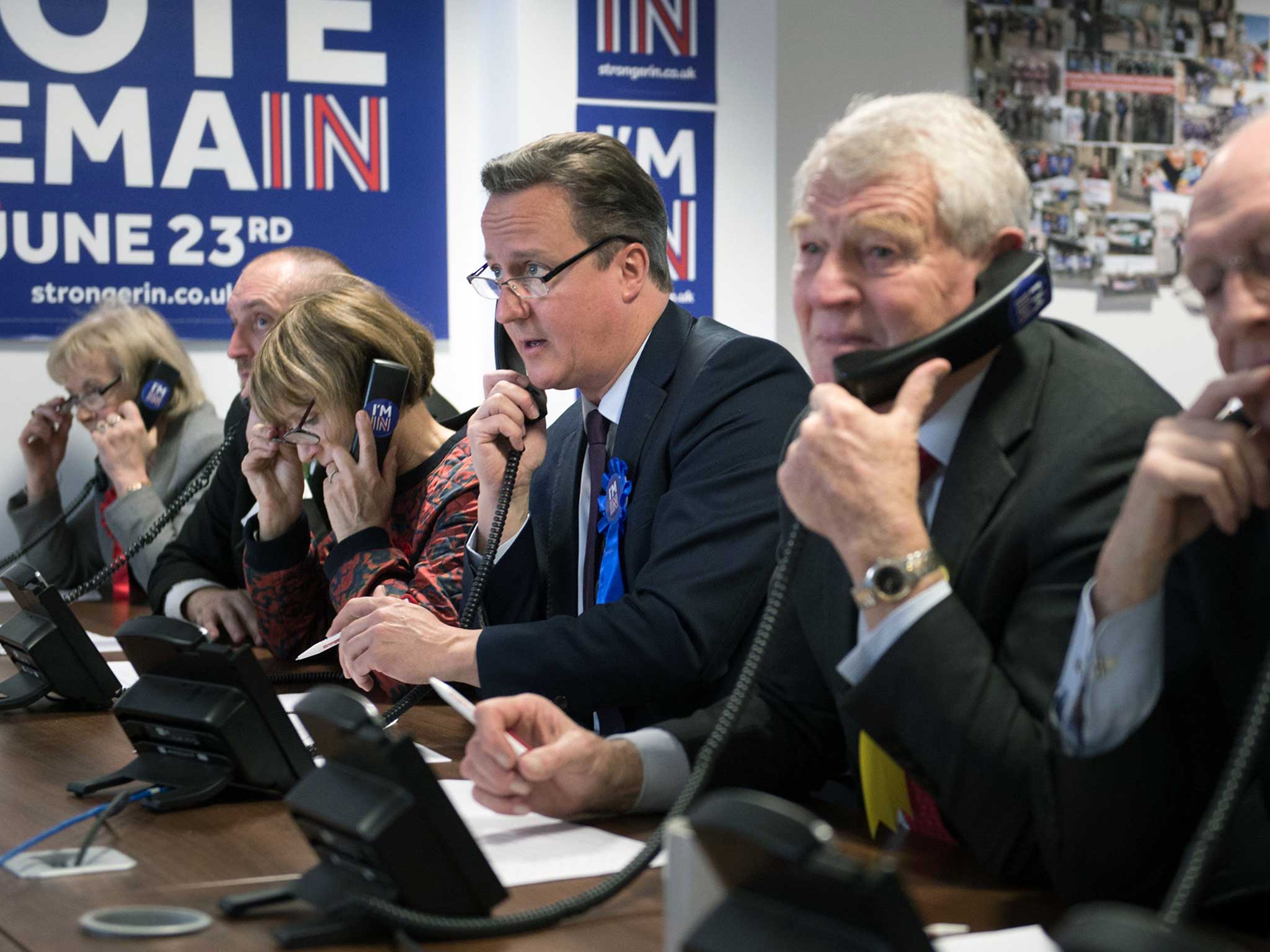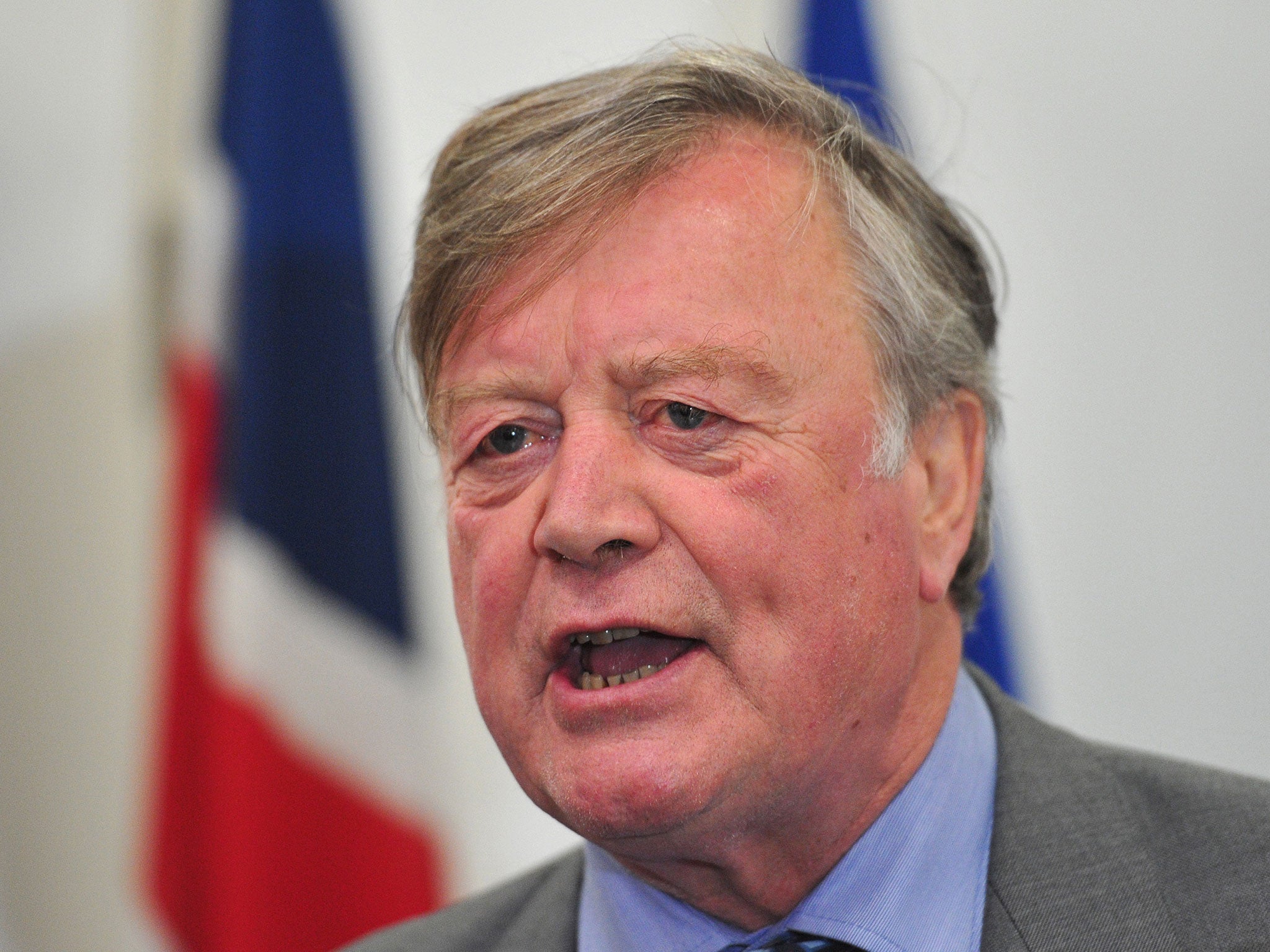Your support helps us to tell the story
From reproductive rights to climate change to Big Tech, The Independent is on the ground when the story is developing. Whether it's investigating the financials of Elon Musk's pro-Trump PAC or producing our latest documentary, 'The A Word', which shines a light on the American women fighting for reproductive rights, we know how important it is to parse out the facts from the messaging.
At such a critical moment in US history, we need reporters on the ground. Your donation allows us to keep sending journalists to speak to both sides of the story.
The Independent is trusted by Americans across the entire political spectrum. And unlike many other quality news outlets, we choose not to lock Americans out of our reporting and analysis with paywalls. We believe quality journalism should be available to everyone, paid for by those who can afford it.
Your support makes all the difference.Former chancellor Ken Clarke has dismissed the idea that David Cameron could remain in office if Britain voted to leave the EU as “farcical”.
Mr Clarke, a longstanding Conservative Europhile, said the Prime Minister would not “last 30 seconds” in the event of an Out vote as his Tory rivals jumped on the perceived failure.
Mr Cameron has pledged to step down before the 2020 general election – putting Tories looking to succeed him as leader of their party onto a war footing.
But the PM has so far declined to give an exact date for his departure, and there has been speculation that he could be challenged in the wake of a vote to leave.
Mr Cameron has himself said he would stay in office after the referendum no matter what the result was.
“The Prime Minister wouldn’t last 30 seconds if he lost the referendum and we’d be plunged into a Conservative leadership crisis, which is never a very edifying sight,” the veteran Conservative told BBC Radio 4’s Week in Westminster programme.
Polling data from Ipsos MORI published last month suggested that nearly half of the public think the PM should resign in the event of an out vote.
The Conservatives however won just over a third of the vote in last year’s general election, meaning two thirds of the public are likely already predisposed to wanting a change of PM.

Possible successors include the Mayor of London Boris Johnson, who backed Brexit after previously taking an undecided position.
Tory members, who will ultimately pick the next leader, intensely prefer Eurosceptic candidates for the post, according to surveys conducted by the insider ConservativeHome website.
The referendum campaign so far has seen the stock of Mr Johnson rise, as well as that of Michael Gove and Liam Fox, two other Eurosceptics.
George Osborne, Sajid Javid, and Theresa May – who like Mr Cameron all back a Remain vote – have seen their fortunes wane.
The peculiarities of the Tory leadership election system however mean that it is only MPs, rather than party members, who will vote in the initial stages of the contest to replace the PM.
After a series of knock-out stages, the least popular candidates among MPs are eliminated until only two remain, at which point the whole membership will be allowed to choose between them.
Mr Clarke served in Mr Cameron's Cabinet as Justice Secretary. He is the public figurehead of an increasingly marginalised Europhile faction within the Conservative Party.
The EU in-out referendum is set to take place on 23 June 2016, with polls so far showing a tight race in the contest. The official campaign period started on Friday.

Join our commenting forum
Join thought-provoking conversations, follow other Independent readers and see their replies
Comments